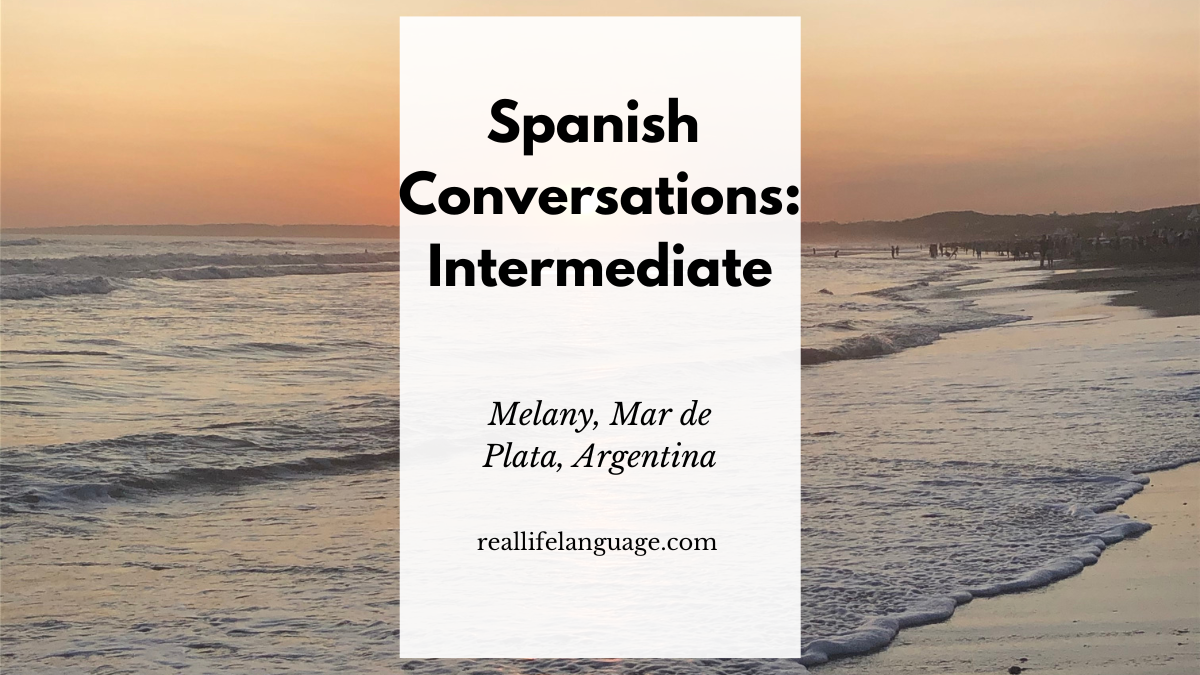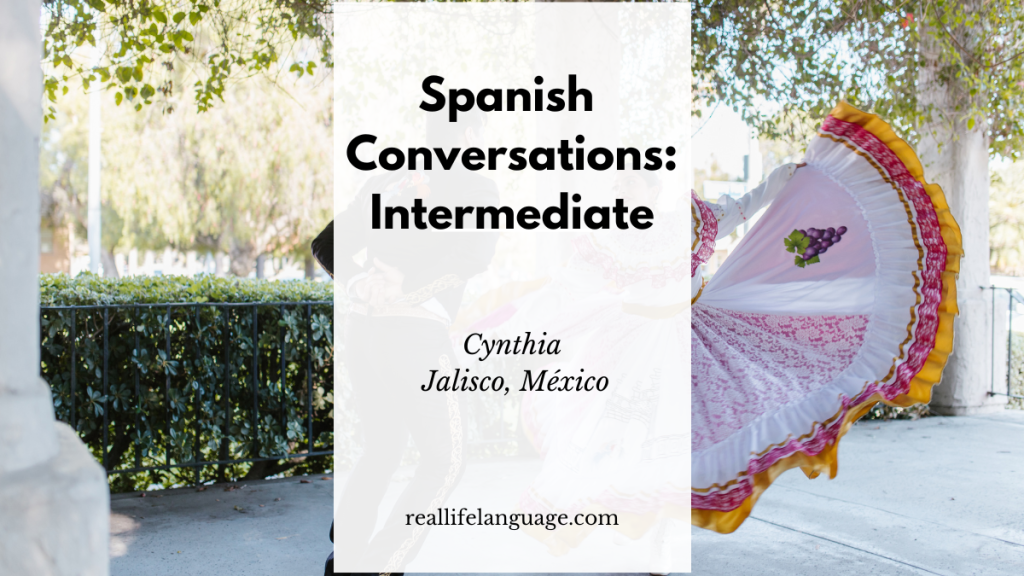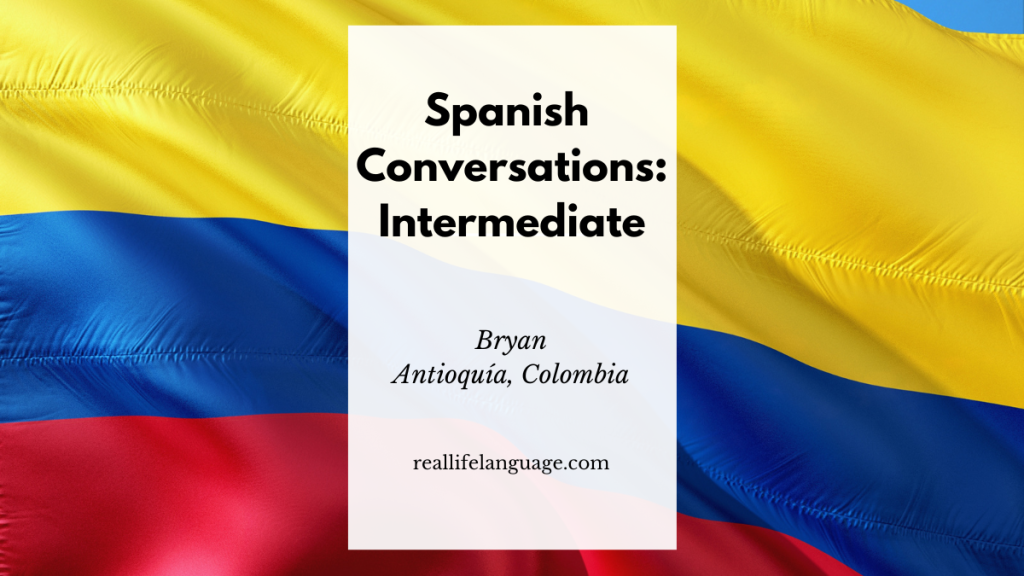
This article explores an authentic intermediate Spanish conversation with Melany, a teacher and curious traveller from Mar del Plata, Argentina. It is designed to help readers learn Spanish through real-life topics: family, food, festivals, geography, art and everyday vocabulary. The examples, cultural notes and practice activities draw on Melany’s answers and provide clear phrases learners can start using today to improve fluency and comprehension while they learn Spanish.
Why this conversation is useful for learners
The dialogue covers familiar, everyday themes—memories, weekend plans, vacations, and personal descriptions—making it ideal for learners who want to build practical speaking and listening skills. Melany speaks naturally: she uses colloquial expressions, regional vocabulary and cultural references that expose learners to authentic usage. Reading and practising with this content helps learners Spanish learners bridge the gap between textbook Spanish and real conversation.
Who is Melany and what topics she covers
Melany is a teacher from Mar del Plata who describes herself as curious, hardworking and becoming more extroverted with time. In the conversation she touches on:
- Personal memories (an unforgettable trip to Disney with family)
- Typical weekend activities and vacations (e.g., Playa del Carmen, tacos, coconut water)
- Cultural life in Argentina: festivals, tango, gauchos, empanadas and mate
- Geography and climate differences across Argentina: north, Andes, central plains, Patagonia
- Arts and literature (fileteado street art, Borges and Cortázar)
- Social topics: friendship, health system, employment, and technology’s pros and cons
Cultural highlights and useful phrases
Melany shares many culture-rich words that every learner should know. Here are key terms with translations and example sentences learners can practise.
- la pachanga / la parranda / la joda — a party.
Example: Vamos a la pachanga el sábado. (We’re going to the party on Saturday.) - el mate — traditional Argentine herbal drink for sharing.
Example: Tomamos mate con amigos los domingos. (We drink mate with friends on Sundays.) - el asado — barbecue, a social Sunday meal with family.
Example: Hicimos un asado enorme para la familia. (We made a huge barbecue for the family.) - las facturas — pastries often served with mate.
Example: Compré facturas para el desayuno. (I bought pastries for breakfast.) - fileteado — colorful traditional Buenos Aires sign art.
Example: El fileteado decora muchos cafés. (Fileteado decorates many cafés.) - la vendimia — grape harvest festival, especially in Mendoza.
Example: La vendimia tiene música y vino. (The grape harvest festival has music and wine.)
On friendship and culture — a short translation
“Friendship to me means unconditional love, respect for the other person, listening to the other person and being there both the good times and the bad times too.”
This quote captures values that recur in Argentine daily life: close family ties, warm social gatherings and a culture centered on sharing food and conversation. Learners should notice how social verbs and nouns (amar, respetar, escuchar, estar) appear in everyday descriptions—great vocabulary to practise when talking about relationships.
Geography, climate and nature — vocabulary to describe places
Melany describes regional contrasts that are useful for learners drafting travel narratives or comparisons:
- el norte — drier, hotter, more tropical flora (jaguars, toucans)
- el centro (Buenos Aires) — temperate, winds, extensive plains and beaches
- la cordillera / los Andes — mountains, Aconcagua, hiking
- la Patagonia — cold, glaciers, lakes, penguins and whales
Practice sentence: En la Patagonia hay glaciares impresionantes y vida salvaje única. (In Patagonia there are impressive glaciers and unique wildlife.)
Arts, literature and conversation practice
Melany mentions two literary giants—Jorge Luis Borges and Julio Cortázar—and points to his work as valuable reading for advanced learners. Recommended practice for learners: read short stories by Cortázar (e.g., Hopscotch selections) and attempt summaries in Spanish to reinforce comprehension and vocabulary.
Practical tips to learn Spanish using this conversation
- Shadowing: Listen to short segments and repeat aloud sentence by sentence. Focus on rhythm, stress and natural pauses.
- Vocabulary notebooks: Write new words with translation, gender (el/la), and one example sentence.
- Roleplay: Partner up and recreate scenes—planning a weekend, describing a festival, or giving a short travel guide to a region of Argentina.
- Use colloquial expressions: Try using words like pachanga, joda, or asado in casual dialogues to become comfortable with informal registers.
- Record yourself: Compare pronunciation with the original speaker and note differences.
Vocabulary list for quick revision
- fiesta — party
- amigos — friends
- familia — family
- plaza / parque — square / park
- gobierno / salud — government / health
- trabajo / desempleo — work / unemployment
- tecnología — technology
Suggested exercises for intermediate learners
- Write a 150-word paragraph describing a memorable family trip using five new vocabulary items from the list.
- Prepare a 2-minute oral description of a local festival (real or imagined) incorporating phrases like: “se celebra”, “hay música”, “se come”, “la gente baila”.
- Listen to an authentic Argentine song and pick out five words you recognize; look up two new words and make sentences with them.
Conclusion
This conversation offers a rich, authentic resource for learners who want to learn Spanish with real-life topics and regional flavour. By focusing on everyday vocabulary, cultural context and practical exercises—shadowing, roleplay and writing—learners build both confidence and accuracy. Revisit the dialogue regularly, practise the phrases, and apply them in conversations to make steady progress as they learn Spanish.
100s of videos to learn Spanish:
https://real-life-language.kit.com/b1531a6404
Learn Spanish: Intermediate Conversation Practice with a Speaker from Jalisco, Mexico

